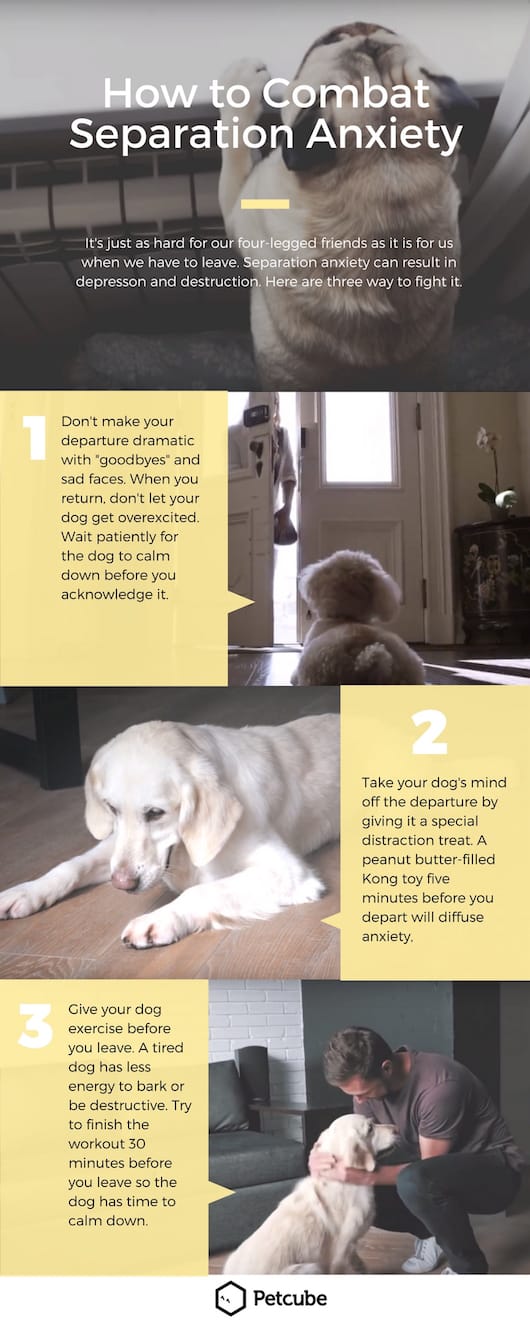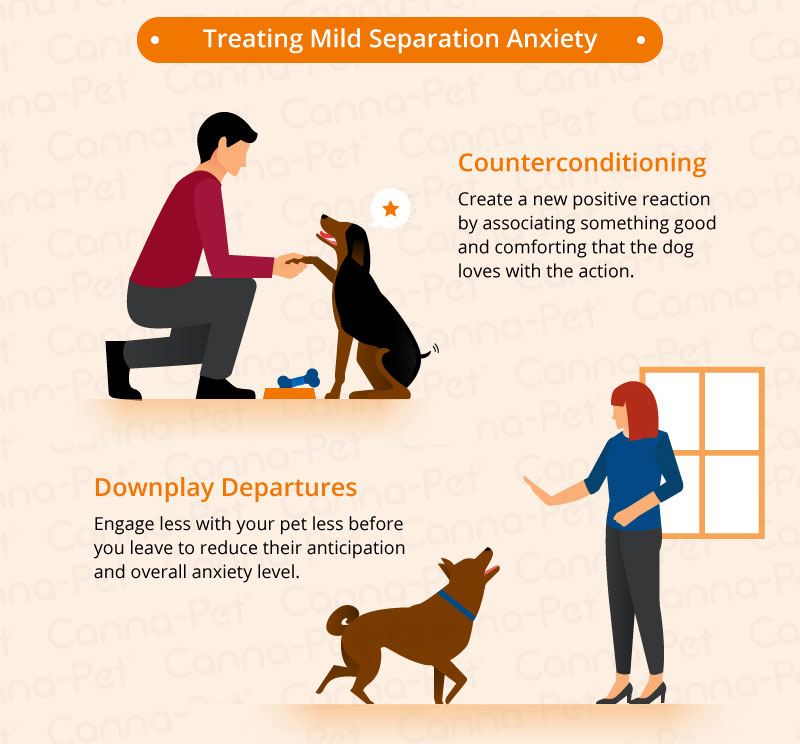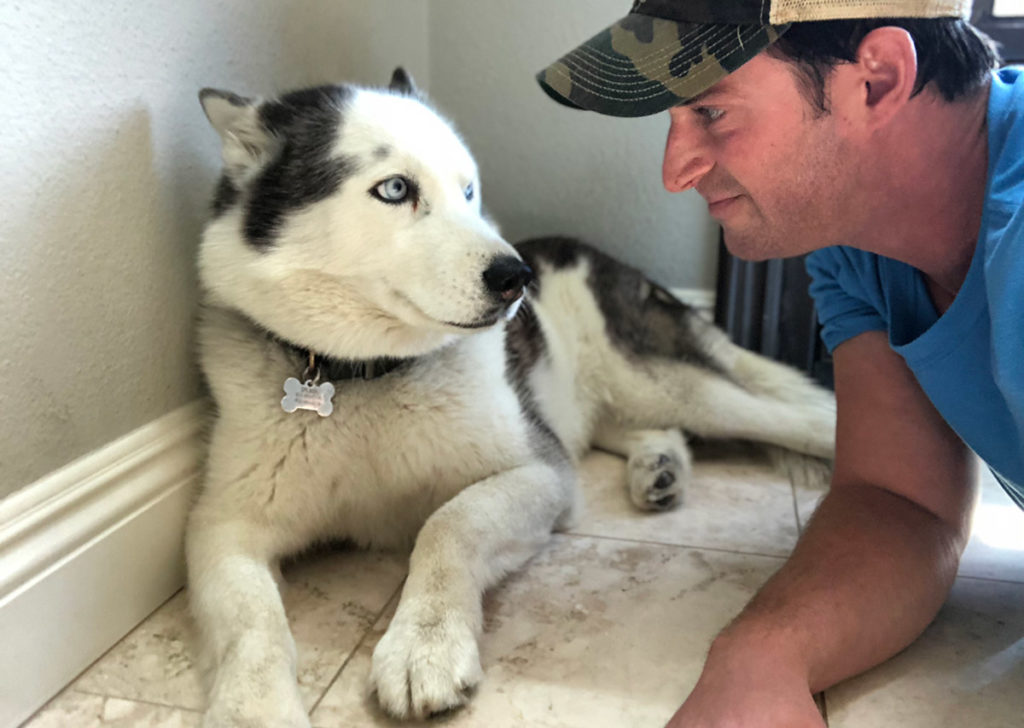To cure dog separation anxiety quickly, provide mental and physical stimulation, establish a routine, and use gradual desensitization techniques. Dog separation anxiety is a common issue that can be distressing for both pets and owners.
Understanding the root causes and implementing effective strategies can help alleviate the symptoms and improve your dog’s well-being. By incorporating positive reinforcement and patience, you can work towards building your dog’s confidence and reducing their anxiety when left alone.
This article will explore practical tips and techniques to address separation anxiety in dogs effectively, allowing you to create a harmonious environment for both you and your furry friend.
Understanding Dog Separation Anxiety
Separation anxiety in dogs can be distressing for both pets and their owners. Recognizing symptoms such as excessive barking, destructive behavior, and urination indoors is crucial. The causes of separation anxiety can range from changes in routine to past trauma. It’s important to address this issue promptly to prevent long-term distress for your furry friend.
Preparing For Treatment
To prepare for treating dog separation anxiety:
- Create a safe space where your dog feels comfortable and secure.
- Establish a daily routine with consistent feeding, playtime, and exercise.
Behavioral Modification Techniques
Desensitization Training: This technique involves gradually exposing your dog to the triggers of their anxiety in a controlled and safe environment. Start with low-intensity exposure and gradually increase the duration and intensity as your dog becomes more comfortable.
Counterconditioning: Counterconditioning involves replacing the negative association with a positive one. For example, if your dog becomes anxious when you leave, you can give them a special treat or toy that they only get when you’re gone, creating a positive association with your absence.
Utilizing Medication And Supplements
When addressing your dog’s separation anxiety, it’s crucial to consult with a veterinarian to determine the best course of action. Veterinarians can provide tailored recommendations and assess your dog’s specific needs to ensure the most effective treatment plan.
There are various medications and supplements available to help alleviate your dog’s separation anxiety. From prescribed medications to natural supplements, it’s essential to explore the options and discuss their suitability with your veterinarian.
Implementing Comforting Strategies
Discover effective methods to alleviate dog separation anxiety swiftly by implementing comforting strategies. These techniques include creating a safe space, gradual desensitization, and positive reinforcement training to promote relaxation and reduce distress in your furry companion.
| Interactive Toys and Puzzles | Engage your dog with interactive toys to keep them occupied and mentally stimulated. |
| Calming Pheromones | Use calming pheromone diffusers or collars to create a relaxing environment for your dog. |

Credit: petcube.com
Addressing Separation Anxiety Progress
Dogs can experience separation anxiety and it can be challenging for pet owners to handle. However, with monitoring behavioral changes and adjusting treatment plans, you can address separation anxiety progress.
It’s important to observe your dog’s behavior and recognize any changes in their daily routine. Signs of separation anxiety may include destructive behavior, excessive barking, and potty accidents. Once you identify these behaviors, you can start adjusting their treatment plan.
There are different approaches to treating separation anxiety, such as medication, behavior modification, and training. It’s crucial to find the right approach that works for your dog. You may need to try different methods and adjust your plan accordingly.
Remember that curing separation anxiety takes time and patience. With consistent efforts and the right treatment plan, you can help your dog overcome this challenging behavior.
Long-term Management And Prevention
Consistency in Training
Ensuring that your dog receives consistent training and reinforcement will help alleviate separation anxiety. Stick to a routine and provide positive reinforcement for good behavior.
Gradual Independence Building
Gradually increase the time your dog spends alone to help them build independence. Start with short periods and gradually extend the time as your dog becomes more comfortable being alone.

Credit: canna-pet.com
Seeking Professional Help
Dog separation anxiety can be challenging to deal with alone. Seeking professional help is key to solving this issue. Working with a certified dog behaviorist can provide specialized guidance tailored to your pet’s needs. Therapy and support groups offer additional resources and emotional support for both you and your furry friend.

Credit: iheartdogs.com
Frequently Asked Questions
Can A Dog Be Trained Out Of Separation Anxiety?
Yes, dogs can be trained out of separation anxiety through behavior modification techniques and consistent training.
How Long Does It Take To Break Separation Anxiety In Dogs?
Breaking separation anxiety in dogs can take anywhere from a few weeks to several months. The length of time depends on the severity of the anxiety and the training methods used. Consistency and patience are key in helping dogs overcome separation anxiety.
What Is A Natural Sedative For Dogs?
A natural sedative for dogs is chamomile. It has calming properties and can help reduce anxiety. You can give it to your dog in the form of tea or supplements. Always consult with a vet before giving any new remedy to your pet.
Can Severe Separation Anxiety In Dogs Be Cured?
Yes, severe separation anxiety in dogs can be cured with proper training, behavior modification, and sometimes medication.
Conclusion
Curing dog separation anxiety quickly is possible with the right approach. It requires patience, consistency, and understanding of your dog’s unique needs. By implementing the tips and techniques discussed in this post, you can help your furry friend feel more comfortable and less anxious when left alone.
Remember to seek professional help if needed, and always prioritize your dog’s well-being above all else. With time and effort, you can help your dog overcome separation anxiety and live a happy, healthy life.

Hello, I’m Ethan Mitchell. My passion is dog training and behavior enthusiasts. With years of experience working with various breeds, my goal at Dog Advisor Pro is to help dog owners build strong, loving relationships with their furry friends through effective training techniques. Understanding a dog’s behavior is the key to harmonious companionship. I am dedicated to sharing practical training tips that improve the lives of dogs and their owners.


